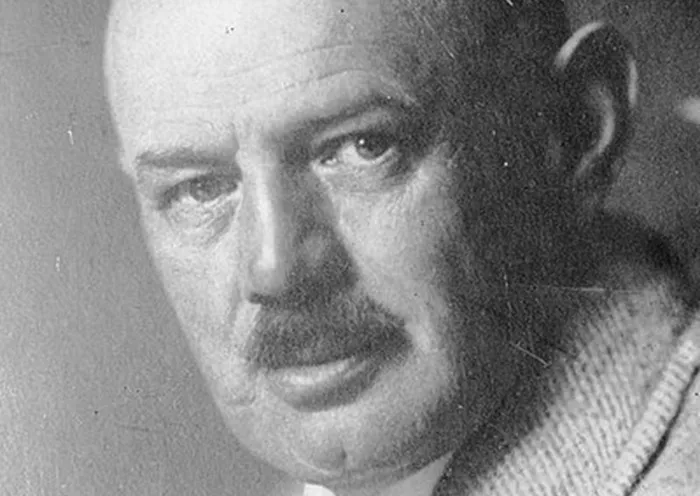The 19th century was a transformative period for German poetry, marked by Romanticism, Realism, and the emergence of new literary movements. Among the many poets who contributed to the richness of German poetry, Dietrich Eckart remains a figure of interest. While he is often associated with early 20th-century political movements, it is important to examine his role as a poet within the broader context of 19th-century German literature. By doing so, we can understand how his work aligns with and diverges from the literary trends of his time. This article will explore his poetic contributions, compare them with his contemporaries, and assess his impact on German poetry.
The Landscape of 19th Century German Poetry
The 19th century saw the rise of German Romanticism, which emphasized individual emotion, nature, and the supernatural. Poets such as Johann Wolfgang von Goethe, Friedrich Schiller, and Heinrich Heine played pivotal roles in shaping the poetic tradition. Romanticism later transitioned into Realism, where poets sought to depict life with greater accuracy and less idealization. German poetry of this period often addressed themes of nationalism, folklore, and existential questions, reflecting the social and political changes of the time.
Dietrich Eckart’s Early Life and Literary Beginnings
Dietrich Eckart was born in 1868, making him a late 19th-century figure whose work carried echoes of both Romanticism and emerging nationalist sentiments. While his literary career extended into the early 20th century, his poetic endeavors should be examined within the cultural and intellectual framework of 19th-century German poetry. Unlike poets such as Heine, who often blended lyrical beauty with political satire, Eckart’s poetry leaned toward mysticism and Germanic traditions. His early works reflect an engagement with themes of destiny, fate, and spiritual awakening.
Themes in Eckart’s Poetry
Eckart’s poetry exhibits several key characteristics that align with and contrast with his contemporaries:
Nature and Mysticism – Like the Romantics, Eckart was deeply influenced by nature and its spiritual significance. His poetry often depicted forests, mountains, and rivers as sacred spaces where the soul could connect with higher truths.
National Identity – While German poetry had long explored themes of national identity, Eckart’s work placed a stronger emphasis on Germanic mythology and folklore. Unlike Heine, who critiqued nationalism, Eckart embraced it as a defining element of his poetry.
Philosophical Inquiry – Similar to Friedrich Hölderlin and other late Romantic poets, Eckart’s verses often delved into philosophical reflections on existence, eternity, and the struggle between good and evil.
Comparison with Contemporary Poets
To better understand Eckart’s place within 19th-century German poetry, it is useful to compare him with his literary peers.
Heinrich Heine (1797–1856)
Heine’s poetry was a blend of Romantic idealism and sharp political critique. He was known for his satirical wit and his critical stance on German nationalism and conservatism. In contrast, Eckart’s poetry lacked the ironic detachment of Heine, instead embracing a more solemn and mythological tone.
Friedrich Rückert (1788–1866)
Rückert was a master of lyric poetry and was deeply influenced by Eastern literature. His work often explored themes of love, mortality, and transcendence. While Eckart also engaged with spiritual themes, his focus was more grounded in Germanic tradition rather than international influences.
Conrad Ferdinand Meyer (1825–1898)
Meyer was known for his historical poetry and narrative verse. Unlike Eckart, who leaned towards mysticism and national identity, Meyer used historical settings to explore human nature and moral dilemmas.
Eckart’s Place in the Evolution of German Poetry
While Eckart’s poetry may not have reached the same literary heights as some of his predecessors, his work represents a transition between late Romanticism and the ideological literature of the early 20th century. His poetic style retained Romantic elements, such as an emphasis on nature and the sublime, but it also prefigured the nationalist and spiritualist themes that would become prominent in German literature in the decades to follow.
Conclusion
Dietrich Eckart stands as a unique, albeit controversial, figure in the history of German poetry. As a 19th-century German poet, he contributed to the evolving landscape of German poetry, blending Romantic ideals with emerging nationalist and mystical themes. While his literary legacy is often overshadowed by his later political involvement, his poetry remains a testament to the complex currents of 19th-century German literature. By examining Eckart’s poetic contributions within the broader context of his time, we gain a deeper understanding of the diverse voices that shaped German poetry during this period.

